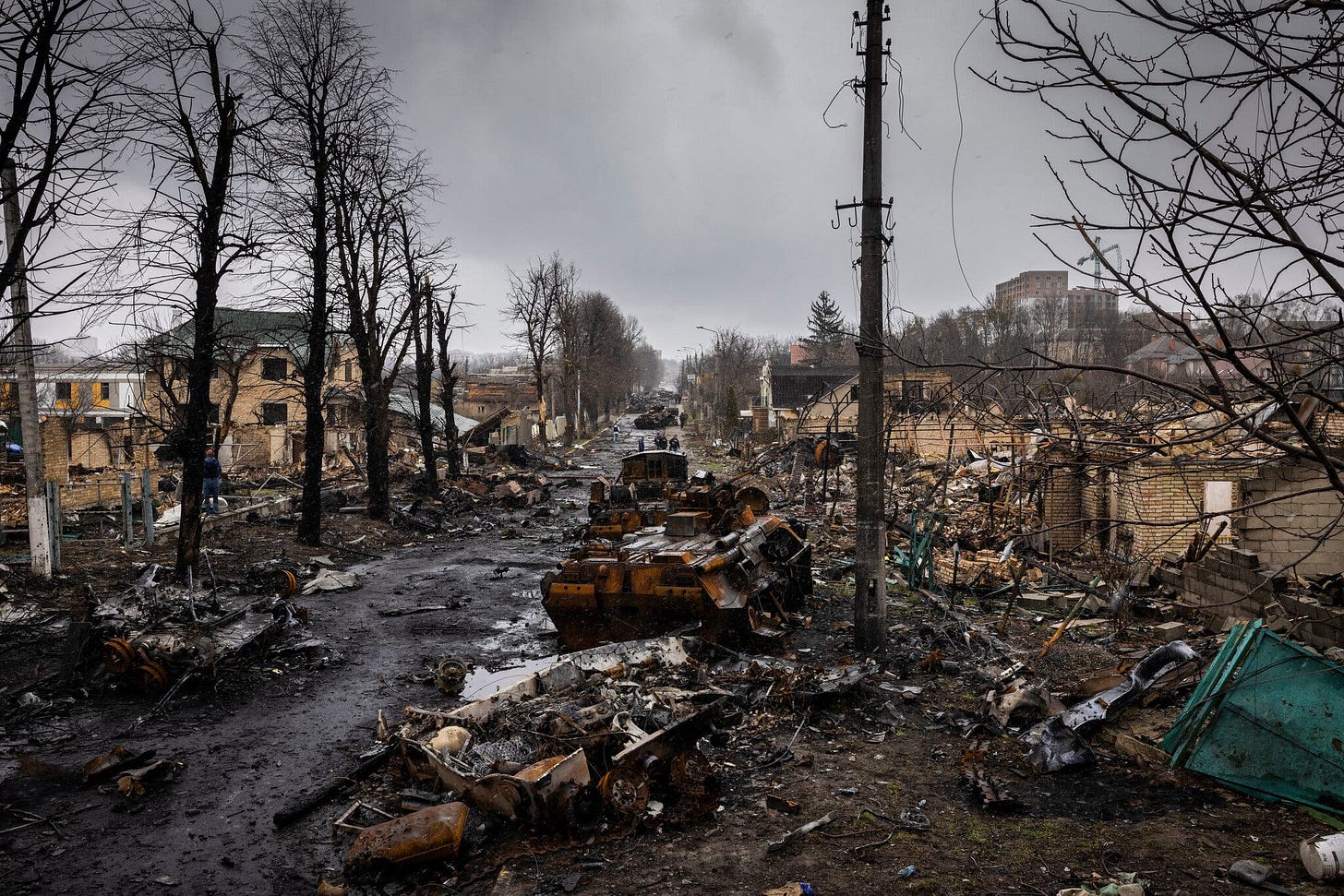Ukraine and the politics of modern-day appeasement
How to end a war "that should never have started"
It is a sad irony of history that as we commemorate the eightieth anniversary of the end of WWII in Europe, the most destructive conflict on the continent since then currently rages, without apparent end, in its East. Giving his first interview since the end of his Presidency to the BBC yesterday, Joe Biden touched on various subjects, but paid particular attention to Donald Trump’s policy on ending the war in Ukraine. Most notably, he accused his successor of the modern-day appeasement of Vladimir Putin through the pressure that the current occupier of the White House has put on Kiev to make territorial concessions in the interests of peace. Rather than appeasement, Biden continued, the aim of US policy should be to ensure that Russia’s neighbours do not have to “yield” to pressure from Moscow as it seeks to reverse the territorial consequences of the collapse of the Soviet Union.
Any accusation of appeasement inevitably draws comparisons to Neville Chamberlain’s policy towards Adolf Hitler in the years prior to WWII, and the former President wasted no time in drawing it in the case of Trump. Yet, there is much to be disputed about his claim. First, it begs the question of what the alternative would be that would allow Trump, or any other President, to avoid being an appeaser, if this is what his policy amounts to. If, as Biden suggested, the policy should be not to reward aggression but to ensure that Moscow’s neighbours do not have to “yield” to it, then facts on the ground in eastern and southern Ukraine show that it was not one that Biden pursued. Instead of providing sufficient support for Ukraine to not yield, by either repulsing the invasion in 2022 or reversing Russia’s gains afterwards, he and NATO instead provided only enough to slow the rate of loss.
Western policy on Ukraine, which the Biden Administration largely crafted, was one of “life-support”, not “do-not-yield” support.

But what appears to be Biden’s strategic amnesia is not limited to a failure of geopolitical nerve three years ago. It is the policy of “life-support” instead of “do-not yield” support that established the facts on the ground that Trump inherited, and which inevitably set the terms for the formulation of his Ukraine policy. In accusing Trump of being an appeaser, Biden is effectively taking the position of an under-achieving father who blames his son for mistakes that are not only of his own making, but which he could have avoided.
It is of course true that the “do-not-yield” option that was available to Biden then remains available to Trump today. More tellingly still, it is the cost of such support, potentially unlimited in its open-endedness, to which Trump has taken exception, most graphically in the excruciating Oval Office meeting with President Zelenskyy last February. But contrary to Joe Biden’s accusation, it is only thanks to Trump’s rather than his predecessor’s acumen in securing the Ukraine Minerals Deal that undoing the West’s policy mess may not require “modern-day appeasement” after all. By more surely underwriting Ukraine’s ability to pay for its own defence, the deal stands the chance of turning its largely defensive posture into a more sustainably and decisively offensive one.
Of course, even with the Minerals Deal in place, Ukraine may still not be offered the level of support that it requires to not yield to Russia, as Biden now wishes. But even if this comes to pass and he ends up gifting territory to Putin to end the war, Trump’s appeasement, such that it is, will come in wrapping paper with his predecessor’s name written on it.



